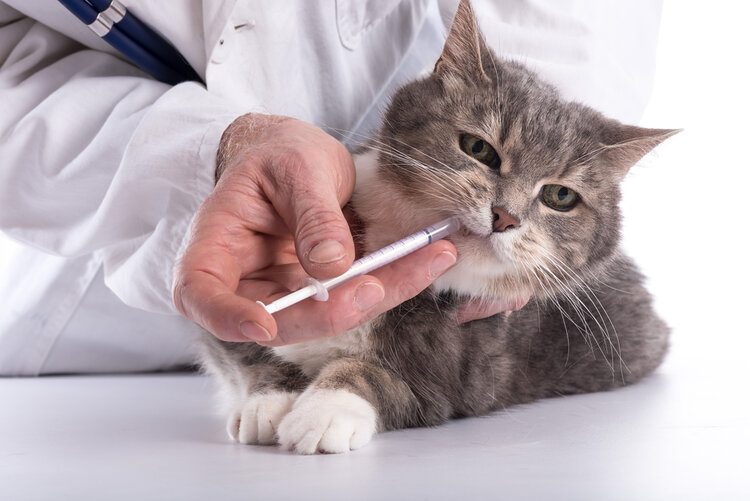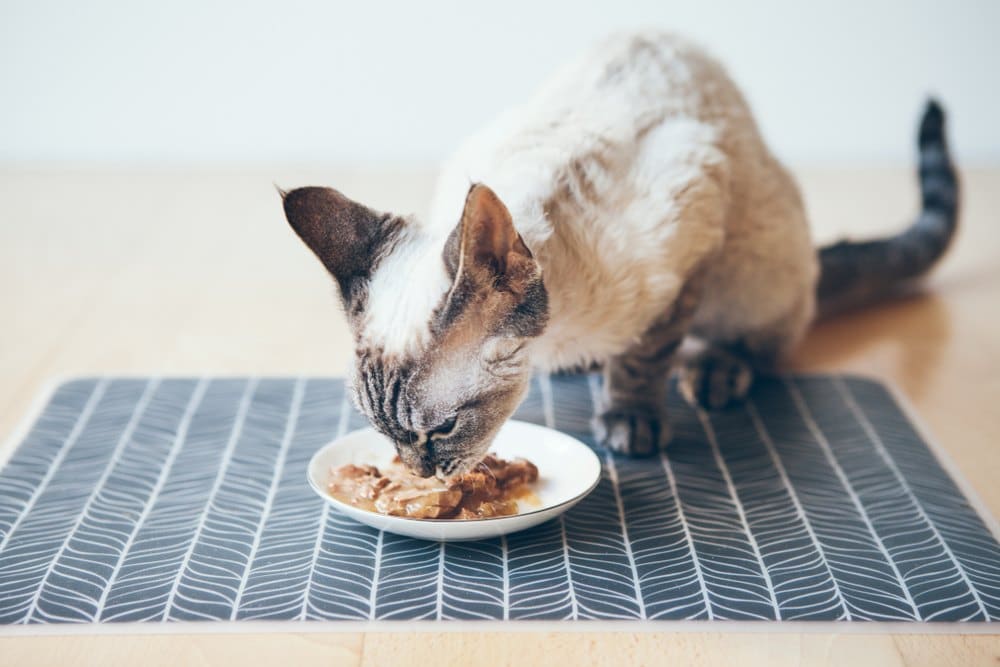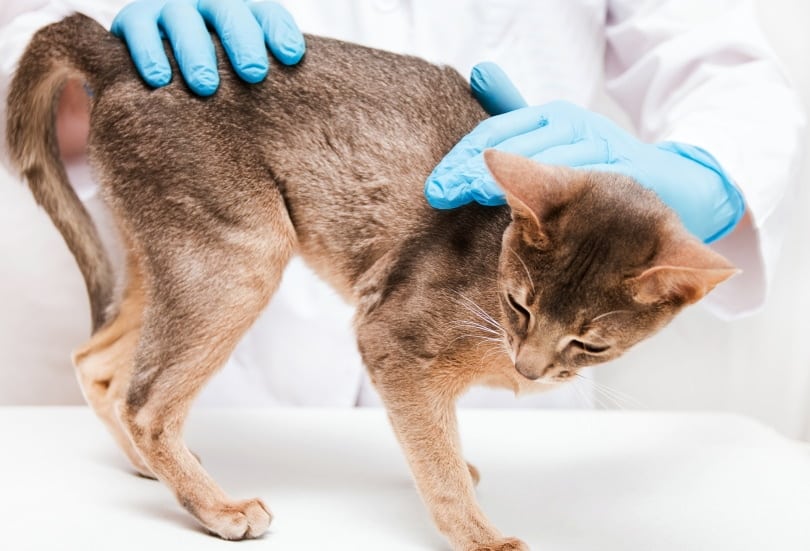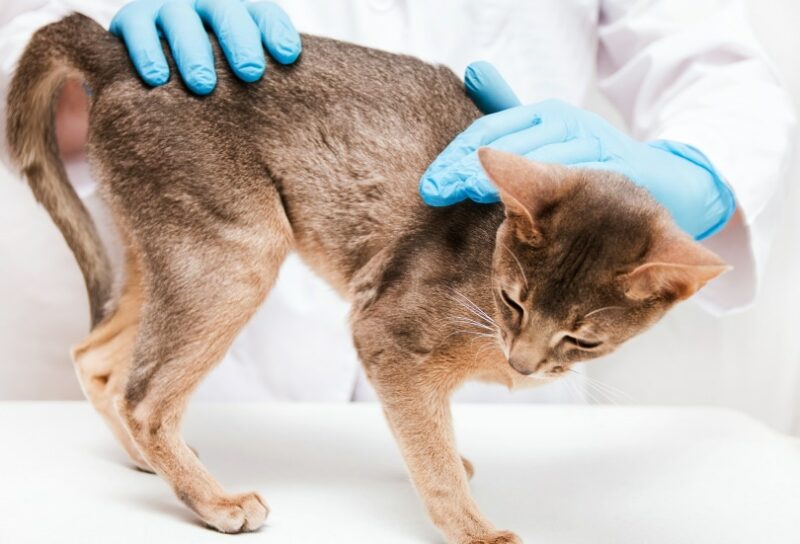Cats with hyperthyroidism can live healthier lives if their condition is managed. Since one major sign of hyperthyroidism is weight loss, cat owners may wonder how to help their cats gain weight.
Your vet is your best source of information on how to help your hyperthyroid cat gain weight, but in this article, we’ll show you four tips for helping your cat pack on the pounds.

What Is Hyperthyroidism?
Hyperthyroidism is a disease in cats where their thyroid is overactive. Cats have two thyroid glands that control and regulate their metabolism. When the glands produce too much of the thyroid hormone, hyperthyroidism is diagnosed.
One sign of the disease is weight loss. Your cat may be eating and seem to have a growing appetite, yet they continue to lose weight. Other signs include increased thirst, restlessness, weakness, urination, and a greasy or dull coat.
This condition can only be diagnosed with a blood test to determine the thyroid levels in the blood. If the disease is not managed, other organs can be affected, particularly the heart. It’s vital to get the condition under control as soon as possible.
The 4 Ways to Make a Hyperthyroid Cat Gain Weight
1. Control the Disease

Your cat can’t gain weight, no matter what you do, if you don’t manage their condition. The first step is getting your cat the right medication to control their thyroid hormones. Antithyroid drugs are the most common treatment, and the cat will have to stay on this medication for the rest of their life.
The medication is usually given twice a day and will control the thyroid levels and keep them at a healthy number. Your cat may need several blood tests after the medication is administered to ensure it works as it should. Adjustments may need to be made until the proper dosage to control your cat’s thyroid hormones is found.
Other options, such as surgery, Hill’s Y/D food, and radio-iodine therapy, may be an option for your cat, which your vet can discuss with you.
2. Change to a Prescription Diet
In some cases, vets may suggest that a prescription diet be used alongside or instead of medication. If your cat’s thyroid levels can be controlled with prescription food, the food will have everything your cat needs to help them gain weight.
After eating the food for a few months, your cat’s thyroid levels should return to normal. Weight gain will happen automatically without you having to do anything. Speak to your vet about a diet change to see if it’s right for your cat.
However, it’s essential to know that cats on a prescription diet for hyperthyroidism can never eat anything else —no treats, table scraps, scavenging or hunting outdoors, or garbage rummaging. Anything besides this food could disrupt their hormone levels.
3. Change Your Cat’s Food Yourself

Always speak to your vet before changing your cat’s food, but if a prescription food isn’t necessary, you can find another food on your own. If your cat has a healthy kidney function, they will do well on a high-protein, high-energy food. This will help them recover muscle mass and gain weight.
If your cat’s kidneys have been affected by hyperthyroidism or another condition, they should eat low-protein food.
4. Increase Exercise
Once your cat’s thyroid hormones have been controlled, regularly play with your cat and get them to engage in physical exercise each day. At least 15 minutes of activity can help them regain muscle mass and build up energy levels, which, in turn, will make them hungrier, so they’ll eat their meals.

Final Thoughts
It can be scary when your cat is diagnosed with hyperthyroidism, but the good news is that the disease can be managed, and your cat can live a healthy, happy life. Your vet will help you stabilize their thyroid hormones and weight. Once the condition is treated, your cat will be able to regain the weight that they lost and stay healthy.
Featured Image Credit: Nataly Mayak, Shutterstock










